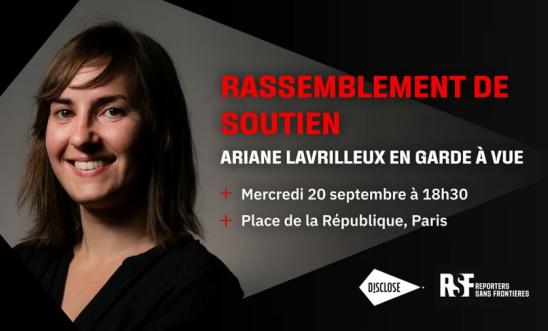
Press releases
France: 'Chilling' attack on journalist is an attempt to cover up serious human rights abuses

French journalist Ariane Lavrilleux detained for reporting on leaked documents
Demonstration to take place today at 6.30pm CET in Place de la République, Paris
‘These actions are part of a wider attack on public interest journalists who attempt to expose the opaque actions of the French intelligence services’ - Agnès Callamard
In response to the detention of investigative journalist Ariane Lavrilleux who reported on leaked documents alleging that French intelligence was used to target civilians in Egypt, Agnès Callamard, Amnesty International’s Secretary General, said:
“It is deeply chilling that, almost two years after the revelations that France was allegedly complicit in the extrajudicial executions of hundreds of people in Egypt, it is the journalist who exposed these atrocities who is being targeted, rather than those responsible.
“This is not just a case of muzzling an individual journalist and threatening the confidentiality of her sources, but these actions are part of a wider attack on public interest journalists who attempt to expose the opaque actions of the French intelligence services.
“The bodies on Egypt’s border with Libya have exposed skeletons in France’s closet and point toward a grisly and secretive pattern of French complicity in serious human rights abuses conducted by abusive regimes across the region.”
Exposing French intelligence services
Ariane Lavrilleux wrote a report which said that French intelligence had been misused by Egypt to target smugglers on the Libyan border and kill civilians. It found that at least 19 bombings against civilians took place between 2016 to 2018 linked to French intelligence given to Cairo.
The raid on Lavrilleux’s home and her detention is linked to five cases: Operation Sirli in Egypt, the sale of 30 Rafale aircraft to Egypt, arms delivered to Russia until 2020, the sale of 150,000 shells to Saudi Arabia and the United Arab Emirates (UAE), and illicit arms transfers from UAE to Libya.
The right to freedom of expression protects journalists from being targeted for disclosing material that is in the public interest, such as the revelations made by Ariane Lavrilleux.